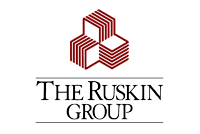Sustainability Overview
Sustainability is, will be, and always has been a top priority for The Ruskin Group

Three spheres of sustainability
PEOPLE
Developing trusted relationships with our employees, communities, customers, consumers, and suppliers – all with a focus on resource conservation as a shared value.
GLOBAL MARKETPLACE
Creating alternative solutions for a more sustainable world in the development of materials, products, processes, and recycling programs.
NATURE
Leaving the world better than we found it by respecting natural forestry and initiating ethical disposal, efficient distribution, and optimal recycling management.
Sustainability Impact Program
We’re proud to have been among the first to implement effective sustainability initiatives, acknowledging the importance of embodying ethically and environmentally responsible practices in all facets of our operations.
The Ruskin Group has an established Sustainability Impact Program for this purpose. We continually evaluate our practices to ensure we comply with sustainability standards. Our highly experienced team is skilled in identifying and implementing sustainable materials, processes, and supply chains. Our supply chain is regularly re-engineered at every point to be more sustainable, from raw material extraction to manufacturing and production to transportation, to utilization to reuse/recycling/disposal. We also opened a world-class Sustainability Center in 2010 to focus on improving and executing sustainable packaging products and processes internally and for our customers.
Recycling Cheat Sheet
Plastics
1 & 2 RESIN CODES: These resin codes are commonly used in beverage bottles and food jars, personal care and cleaning products. They’re usually accepted in most curbside recycling programs.
3-7 RESIN CODES: These resin codes are found in a variety of plastic bags, wraps for food packaging, food service items, squeezable bottles, coated beverage cups, medicine bottles, and styrofoam containers for takeout food. Items with these codes are often not recyclable in standard programs – please check with your local municipality to determine proper disposal.
Glass
Oil
Batteries
Dry cell batteries (9-volt, D, C, AA, AAA, button, circular and rectangular) can be recycled at larger retail stores with designated battery recycling crates.


















